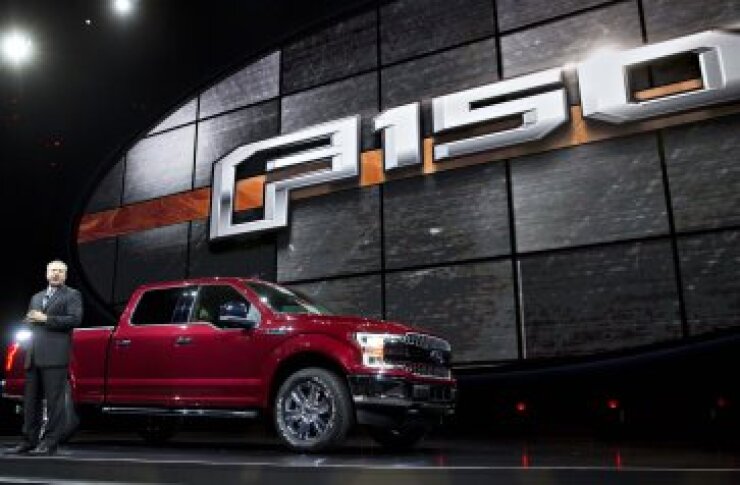
Ford Motor Credit’s first asset-backed deal of 2017 is also a window into the simmering issues prime lenders face in maintaining stellar portfolio credit metrics.
The $1.57 billion Ford Credit Auto Owner Trust 2017-A is lauded by Moody’s Investors Service for its high weighted average FICOs (736) and as a strong follow-up to Ford Motor Credit's previous transaction (FCAOT 2016-C) that also featured “slightly stronger” pool characteristics than previous deals, according to a presale report published Thursday.
But the tighter underwriting is taking place as cumulative net losses nudge upward in recent vintage FCAOT deals and Ford is pooling more 60-plus month loans that carry added risk of higher loss severity and lower recovery rates.
FCAOT 2017-A is the second prime auto securitization of the year (following
Its capital structure is almost entirely composed senior notes (95%) including a $346.4 million Class A-1 money market tranche due 2018, with a preliminary ‘F1’ rating from Fitch Ratings and P-1 from Moody’s. The multi-year tranches of Class A notes is led by a split Class A-2 series divided between two-year floating and fixed-rate tranches totaling $559.8 million (The A-2B notes will not exceed $419.8 million). A Class A-3 series of notes due 2021 is sized at $451.5 million, followed by a Class A-4 tranche of $135.5 million in notes with the longest tenor of five years.
The transaction also includes $47.15 million in Class B notes that carry an ‘AA’ Fitch ratings and an ‘Aa1’ Moody’s rating; and a $31.44 million Class C tranche rated ‘A’ Fitch and ‘Aa2’ by Moody’s.
The notes are backed by an initial collateral pool of $1.718 billion in loans, most of which are for new vehicles (90.7%). The average principal balance is $25,821, higher than recent FCAOT transactions as well as peer deals from the likes of Nissan and World Omni. More than 75% of the vehicles are light trucks and SUVs.
The 736 average FICO continues the upward trend in customer credit profiles for Ford, which also originated 38% of the loans in the pool to consumers with ultra-high 740+ FICO scores, and fewer to those with subprime FICOs below 600 (5%). Weighted-average LTVs are at 98.16%.
The average APR is 2.61%, the lowest of any Ford Transaction in recent years. While that could be the result of underwriting higher-quality credit customers, Fitch notes the potential impact of additional marketing incentives that Ford provides dealers through subventing arrangements. The percentage of subvented vehicle contracts was at 66.3%, which while slightly below the previous transaction a figure that has been rising steadily since 2013 when the percentage was only 42.3%.
The percentage of loans over 60-plus months is 55.1, slightly up from two previous transactions, and well above the 2013-2015 levels of 41% to 46% eight deals. For the last five transactions, a majority of contracts in Ford’s pools have been over 60 months, a level previously not breached.
In contract, CPS' first 2017 collateralization of subprime used-car loans took a step back on extended term loans. It included no loans over 72 months (unlike its 2016-D issuance which had 6.5% of its pool made up of loans in excess of six years.)
Delinquencies and losses on Ford Motor Credit’s $42.1 billion loan portfolio as well as its 2012-2016 securitizations are low and well below peak levels of 2009, but nonetheless have been rising.
Net losses as a percentage of average portfolio outstanding totaled 0.48% for the first nine months of 2016 for Ford Motor Credit loans, up from 0.33% in 2015. Fitch notes these “moderately higher” loss rate equate to average net loss per contract of $5,755, up from $3,895 a year earlier – a difference from the higher average amount financed in contracts, the lower average number of months before a repossession, as well as softening used vehicle prices affecting residuals and recovery rates.
Citigroup is the lead underwriter of Ford’s new deal, joined by BNP Paribas, Bradesco BBI, Goldman Sachs and Societe Generale.





